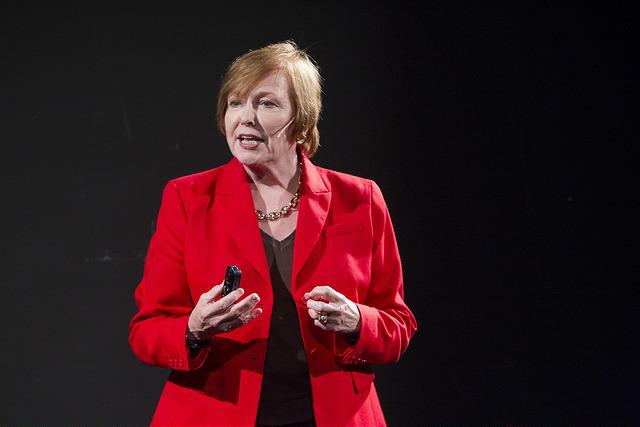In a move winning the praise of public health leaders, Health and Human Services (HHS) Secretary Tom Price, MD, announced Brenda Fitzgerald, MD, an obstetrician-gynecologist who has deep public health experience, as director of the Centers for Disease Control and Prevention (CDC).
Fitzgerald was also named administrator of the Agency for Toxic Substances and Disease Registry. She becomes the CDC's 17th director, replacing Anne Schuchat, MD, who has served as acting director since January when Tom Frieden, MD, MPH, stepped down at the end of the Obama Administration.
"Having known Dr. Fitzgerald for many years, I know that she has a deep appreciation and understanding of medicine, public health, policy and leadership—all qualities that will prove vital as she leads the CDC in its work to protect America’s health 24/7," said Price, also a Georgia native, in an HHS statement.
Fitzgerald has been commissioner of the Georgia Department of Public Health and a state health officer for the past 6 years and is president-elect of the Association of State and Territorial Health Officials (ASTHO). She had practiced medicine for 30 years and was a health policy advisor to two Republican Congress members from Georgia.
She holds a Bachelor's degree in microbiology and received her medical degree from Emory University School of Medicine, where she also completed her postgraduate training and taught clinical medicine. She is a Major in the US Air Force, having served at Wurtsmith Air Force Strategic Air Command Base in Michigan and at Andrews Air Force Base in Washington, DC.
Schuchat will return to her role as CDC principal deputy director, the Price said. "We thank Dr. Schuchat and her team for their dedication in our public health efforts to keep Americans safe and for their work to ensure a seamless transition."
A strong choice
Several public health leaders gave the Trump Administration's CDC pick high marks. Scott Becker, executive director at the Association of Public Health Laboratories (APHL), told CIDRAP News that Fitzgerald is a "strong choice" for CDC director. "She has the state health experience and proven dedication to public health to lead CDC in the coming years."
Georges Benjamin, MD, executive director of the American Public Health Association (APHA), also said Fitzgerald is a good choice to lead the CDC.
In a statement, he said from her work as a practicing obstetrician-gynecologist to her time as Georgia's public health commissioner, Fitzgerald is "more than prepared to face the health challenges of our time, including climate change, Zika, Ebola, and our growing burden of chronic disease."
He said she has shown tremendous leadership in the fields of maternal and child health, making early childhood development a priority throughout her work in Georgia. "The American Public Health Association looks forward to engaging with her on pressing actions including addressing health inequities, preparing and training the public health workforce, and educating the public on prevention," Benjamin added.
Tough budget challenges ahead
John Auerbach, president and chief executive officer with Trust for America's Health (TFAH), a nonprofit health advocacy group based in Washington, DC, knows Fitzgerald from from when he worked at the CDC in governmental relations. He called Fitzgerald an excellent choice who has been distinguished leader at the national level, including issues involving emergency preparedness, chronic diseases, and infectious diseases.
CDC directors play a pivotal role and face tough challenges in any presidential administration, and Frieden came on board during the 2009 H1N1 pandemic and handled other public health crises, including the Ebola and Zika outbreaks.
Auerbach said Fitzgerald comes on board at CDC at a challenging time as the agency faces budget pressures, with President Trump proposing a 17% cut to CDC's budget with an additional 12% in funding facing the chopping block if the Affordable Care Act is repealed. Taken together, the cuts would be devastating to the nation's health and increase the number of preventable illnesses and deaths, he added. "One of her first challenges will be to defend the CDC budget."
Vaccine proponent, infectious disease ally
William Powderly, MD, president of the Infectious Diseases Society of America (IDSA), in a statement today congratulated Fitzgerald on her appointment and said she comes to the CDC at a critical time when strong federal leadership is needed to protect patients and communities from the impact of the opioid crisis on HIV and hepatitis C transmission, rising antimicrobial resistance rates, outbreaks of measles and other vaccine-preventable diseases, and emerging and reemerging diseases that have pandemic potential.
He said during Fitzgerald's time as ASTHO's president-elect she called for robust support of epidemiology and lab infrastructure. "We are confident that as an obstetrics specialist, she understands the importance of well-resourced and evidence-based responses to Zika as well as other vector-borne diseases," Powderly said.
"We appreciate that she has voice strong support for the value of vaccines, and led efforts to raise rates of childhood immunizations," he said, adding that she has first-hand experience responding to global health threats when healthcare workers sickened in West Africa's Ebola outbreak were flown to Georgia for treatment.
Powderly voiced concerns, however, that Fitzgerald will resources and support Fitzgerald will have as she takes the helm at CDC. "IDSA remains deeply concerned about the President’s proposed cuts to nearly all of CDC’s infectious diseases programs that, if enacted, would significantly dismantle our national infrastructure to combat infectious diseases, and we are deeply concerned about efforts to repeal the Prevention and Public Health Fund."
See also:
Jul 7 HHS press release

















